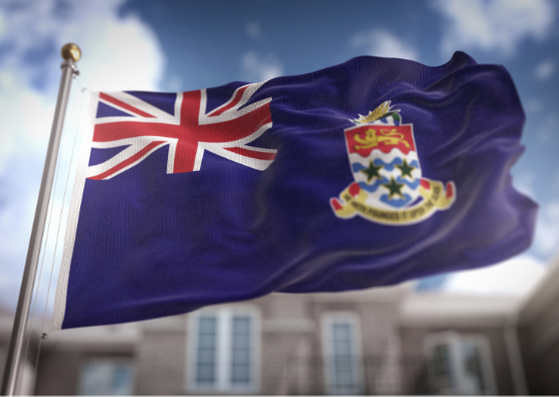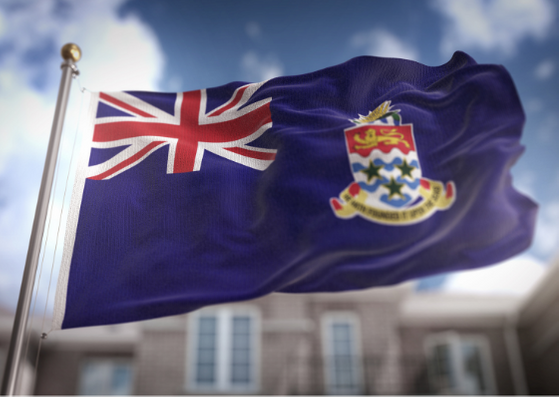5 min read
Why register vessels in the Cayman Islands?
By: Dryad Global on December 23, 2020 at 8:22 AM

The yachting industry, like many other travel-related industries, was initially hit hard by the COVID-19 pandemic. However, there are now signs of recovery in the area of yacht sales and charters and the Cayman Islands continues to be a key player in the vessel registration space in these unprecedented times.

Why register vessels in the Cayman Islands?
There are a number of reasons for registering a vessel, including:
- to prove its nationality (an essential requirement for overseas voyages);
- to secure title to a movable asset for the owner of the asset; and
- to allow the vessel to be used as security to obtain a marine mortgage.
Why register in the Cayman Islands?
Opting to register a vessel in the Cayman Islands has a number of advantages, including as follows.
Category 1 British Registry
The Cayman Islands Shipping Registry (CISR) is a member of the Red Ensign Group with Category 1 status and is authorised to certify all sizes and types of vessel (other than fishing vessels, unless owned locally and operating in Cayman waters).
Favourable operating environment
The Cayman Islands is a politically stable British overseas territory. It is an efficiently regulated international finance jurisdiction at the leading edge of global best practice.
Efficient
With Category 1 status, the CISR is an effective and efficient registry which is responsive to enquiries and looks to facilitate smooth and efficient vessel registrations (and has continued to do so notwithstanding the recent challenges presented by COVID-19). Vessel and mortgage registrations can be completed within 24 hours of the provision of all required documentation to the CISR.
Experienced global team
With offices in the Cayman Islands, the United Kingdom, the United States and Southeast Asia, the CISR can process registrations in various time zones promptly and efficiently.
Tax neutral
Given the significant expenditure involved in the purchase and maintenance of modern vessels, the tax neutrality of the Cayman Islands minimises the tax leakage involved in any deals.
Modern maritime legislation
As a jurisdiction which actively seeks new vessel registrations, the Cayman Islands has enacted maritime legislation to streamline the processes involved.
Several types of registration available
The CISR offers different types of vessel registration including full, interim, under construction and demise charter registrations (also known as 'bareboat charter').
Registration process
Qualifying vessel
The first step is to establish whether the vessel name is available and whether the vessel qualifies for registration with the CISR. Name availability can now be searched and name reservations made online on the CISR's website. A name can be reserved for 12 months and may be renewed.
For existing commercial vessels (merchant ships or commercial yachts), it is established whether the vessel would be accepted for registration by contacting the CISR.
For pleasure yachts in private use and not engaged in trade, minimum convention and statutory certification requirements apply. The precise requirements depend on the vessel's size. A pleasure yacht in private use (not engaged in trade) may voluntarily comply with the Large Yacht Code. In these cases, registration does not require such compliance, the vessel will be surveyed for compliance at the time of registration and if found compliant, the appropriate convention and statutory certificates will be issued accordingly.
Qualifying ownership
The next step is for the CISR to satisfy itself that the owner is bona fide and qualifies to own a Cayman-flagged vessel. This involves a determination of whether:
- the owner has legal title; and
- any pre-existing conditions prohibit the vessel from being registered with the CISR.
The CISR accepts the following ownership structures for Cayman-flagged vessels:
- individual or joint owners; and
- companies and shipping entities.
Cayman companies
The CISR accepts applications for vessel registration on behalf of companies or entities that are in the process of being incorporated in order to allow the registration of the owning company or entity and registration of the vessel to be progressed simultaneously.
Registration process
The registration forms, supporting documentation and fees vary depending on the particular transaction being carried out. The CISR typically requires the following documentation in order to complete full registration of a vessel and issue a certificate of British registry for such a vessel:
- CISR 855 and CISR 856 registration forms;
- a builder's certificate if the vessel is new or a bill of sale if the vessel is an existing one;
- a certificate of good standing (or its equivalent if the owning company or entity is incorporated in another qualified jurisdiction) for the owning company;
- a certificate of survey;
- an international tonnage certificate; and
- a closed transcript or deletion certificate if the vessel was previously registered elsewhere.
Agents
An owner may act in registration matters on their own behalf or appoint an authorised person to do so. If the owner (individual or body corporate) is not resident or incorporated in the Cayman Islands, a resident representative person must also be appointed to act on behalf of the owner. These appointments must be made before or at the same time as submitting the vessel registration application to the CISR.
Issue of carving and marking note
Once the CISR has received all forms and supporting documentation, the IMO number (if applicable) and the relevant fees and the survey and audit requirements have been met, the CISR will:
- assign an official number to the ship;
- issue the owner (or their authorised or representative persons) a carving and marking note; and
- assign the signal letters for the vessel's radio station call sign.
Any of these parties may then arrange for the vessel to be first permanently marked and then inspected (normally by a class surveyor) for verification with the carving and marking note. If satisfied, the surveyor will sign the carving and marking note and return it to the CISR.
The completed carving and marking note may be submitted electronically within the allotted 21 days; however, the original should be returned seven days thereafter.
Radio licensing
Radio licensing applications are handled by the Utility Regulation and Competition Office of the Cayman Islands rather than the CISR. Radio equipment operators must have a radio operator's certificate appropriate to the equipment fitted for the vessel.
Completed registration
The effect of registration with the CISR is that the port of registry for the vessel in question will be:
- George Town;
- the Creek; or
- Bloody Bay.
In addition, a vessel registered with the CISR is a 'British ship' and is thus entitled to fly the red ensign flag and come under the protection of the British Royal Navy.
Source: International Law Office
Related Posts
South Africa signs Jeddah Amendment to combat..
South Africa has become the 17th signatory to the Jeddah Amendment to the Djibouti Code of Conduct..
Ongoing Incident - Vessel Detained - Strait of..
The South Korean flagged Chemical Tanker HANKUK CHEMI (IMO:9232369) is confirmed to have been..
Alleged Attack Against Israeli Owned Vessel..
Unconfirmed media reporting has indicated that the MV HYPERION RAY (IMO9690559), has been involved..




